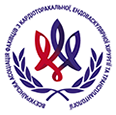Reviews
DOI: http://doi.org/10.31928/2305-3127-2023.1-2.1521
Cognitive disorders in patients with atrial fibrillation
O.A. Yepanchintseva 1, 2, A.S. Solonovych 1, O.S. Solonovych 3
1 Heart Institute of the Ministry of Health of Ukraine, Kyiv, Ukraine
2 Shupyk National Healthcare University of Ukraine, Kyiv, Ukraine
3 A.P. Romodanov Neurosurgery Institute NAMS of Ukraine, Kyiv, Ukraine
Atrial fibrillation (AF) is one of the most common arrhythmias, and its prevalence increases with age. Cognitive impairment (CI) is a frequent concomitant disorder in AF and is an additional factor in reducing the quality of life and adherence to treatment in such patients. AF is associated with an increased risk of dementia in patients with and without history of stroke. It is well known that AF and CI share common risk factors such as age, hypertension, diabetes, dyslipidemia, obstructive sleep apnea, coronary heart disease, heart failure, chronic kidney disease, obesity, etc. The available data show that AF and CI have common pathophysiological factors, which, in addition to stroke, include hypoperfusion, microhemorrhages, brain atrophy, systemic atherosclerotic vascular damage, endothelial dysfunction, and inflammation. Screening neuropsychological scales might be used to assess the state of cognitive functions in patients with AF, and contemporary neuroimaging methods allow detecting structural changes in the brain. Specific methods of treatment of CI in AF have not yet been developed. Optimal antithrombotic therapy is the main means of prevention of cerebrovascular events, and therefore CI in AF.
Key words: atrial fibrillation, cognitive disorders, neuroimaging, neuropsychological testing, anticoagulant therapy.
| [PDF] | [References] |








